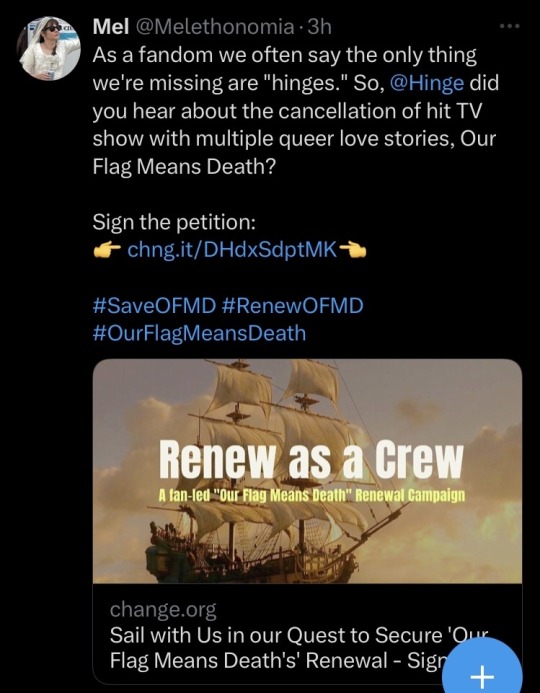#thedivinecomedy
Explore tagged Tumblr posts
Text
Ezra Pound the best craftsman


Ezra Pound the best craftsman Ezra Pound the best craftsman as Eliot called him, an article that synthetically explains the linguistic art and poetics of this great poet, with some examples of his writing style and deep literary meaning. I have never known anyone worth a damn who wasn't irascible. Ezra Pound I guess the definition of a lunatic is a man surrounded by them. Ezra Pound A slave is one who waits for someone to come and free him. Ezra Pound The real trouble with war (modern war) is that it gives no one a chance to kill the right people. Ezra Pound I could I trust starve like a gentleman. It's listed as part of the poetic training, you know. Ezra Pound No man understands a deep book until he has seen and lived at least part of its contents. Ezra Pound For Ezra Pound il miglior fabbro. The dedication is drawn from The Divine Comedy, the 14th century epic poem by Dante. The Divine Comedy is divided into three parts - Inferno, Purgatorio, and Paradiso - describing Dante's journey through Hell, Purgatory, and finally Paradise. Eliot returns to this poem throughout The Waste Land. Here, the dedication translates as “the better craftsman,” a reference to Canto 26 of the Purgatorio. Dante refers to the poet Arnault Daniel, but Eliot passes the compliment on to Pound, who helped edit The Waste Land. Eliot returns to the same canto in line 428. More context, from the Cotter translation of the Purgatorio: “O brother, the one I point to with my finger,” He spoke, and pointed to a soul in front, “Was a better craftsman of the mother tongue.” This information is based on a footnote from North (2001). For more on Pound's contributions, see the annotated manuscript of The Waste Land in Eliot (1971). Ezra Weston Loomis Pound was an American expatriate poet, critic and intellectual who was a major figure of the Modernist movement in early-to-mid 20th century poetry. Born in Halley, Idaho, (1885-1972) Pound spent most of his life in Europe. In 1908, in his mid-twenties, he went to London because he wanted to meet the greatest living poet, W.B. Yeats, settled there and became a central figure in the literary and artistic world. He founded and led a poetic movement called "Imagism", which reacted against 'Romanticism' and contributed greatly to the development of "Modernism". For some time he was also involved in "Vorticism", an art movement initiated in 1913 by Wyndham Lewis, which combined cubism and the celebration of the energy and speed of the machine age, very much like Futurism in Italy. In 1909 he published Personae, a collection of poems after the manner of the Victorian poet Robert Browning, whose dramatic monologue technique he employed to speak through the voice of others. A "persona" was the mask worn by Roman actors, and Pound used the mask to avoid subjectivity, which the imagists objected to in Romantic poetry. Gradually, Pound started moving away from the constraints of Imagism, and translated from Anglo Saxon and Chinese verse to explore different forms. In 1917 he also started writing the Cantos, a series of poems inspired by Dante's Divine Comedy and Homer's Odyssey, which he would work on for the rest of his life, while Hugh Selwyn Mauberley (1920) perhaps the first great modernist poem, attacks the destruction of the First World War and initiates one of Pound's main themes: the relationship between civilization and its economic and social basis. From 1920 he lived in Paris with his wife and became part of the new literary scene with expatriate Americans like Gertrude Stein and Ernest Hemingway. In Paris he also met James Joyce, then an obscure writer, and helped him publish Ulysses, which had censorship problems in England.

The art of Ezra Pound In 1929 Pound settled in Rapallo, Italy. He became increasingly concerned with the decline of Western civilization and with the social basis of art in what he believed to be a degenerate economic system. He studied the history of Italian Medieval and Renaissance states and found that Italy had in the past created the ideal conditions for the flowering of great art, while he associated modern credit capitalism with the social and spiritual decline of the present. Unfortunately, Pound's dislike of capitalism led him to Fascism and to Mussolini, who was himself anti-capitalist and who persecuted the Jews, associated with money-lending since the Middle Ages. During the Second World War he made a series of propagandist broadcasts over Radio Rome for which he was later tried in the United States, and confined for 12 years in a hospital for the insane. When he was released, he returned to Italy and died in Venice in 1972. With the Imagist movement, Americans poetry became international, and its leaders, the American Ezra Pound and T.S. Eliot, also became the leaders of European poetry. Imagism as such had a short life-span. But it was to become the most influential poetic movement of the century, just as Pound is now considered one of the most influential Modernist poets. Pound was also a generous encourager of other poets and writers; he edited The Waste Land and published Joyce's Ulysses. Through his translations and essays he made known to English-speaking readers Provencal poetry, the Italian poets of the Stil novo, Japanese dramatic literature and Chinese classical poetry. Finally, his critical essays con-tributed to the definition of 'Modernism' as a movement and introduced new standards of objectivity in the evaluation of literature. The Modern Age Cantos Imagism When Pound went to London he made common cause with a small group led by the philosopher T.H. Hume. They called themselves imagists and announced a new kind of poetry, which Pound summarized in a Manifesto: 1) To use the language of common speech, but to em-ploy also the exact word, not the merely decorative word. 2) To create new rhythms - as the expression of new moods. We do not insist on 'free verse' as the only method of writing poetry... We do believe that the in-dividuality of a poem may often be better expressed in free verse than in conventional forms. 3) To allow absolute freedom in the choice of subject. 4) To present an image (hence the name 'Imagist'). We are not a school of painters, but we believe that poetry should render particulars exactly and not deal in vague generalities, however magnificent and sonorous. 5) To produce poetry that is hard and clear, never blurred or indefinite. 6. Finally, most of us believe that concentration is the very essence of poetry. A multicultural collection of poems The following poem by Pound has become famous as an example of the principles declared in the Manifesto. The poem describes a moment of intense emotion at seeing beautiful faces in a station of the Paris underground. The images condense the emotion in two parallel pictures with great economy of words, and using the language of common speech: In a Station of the Metro The apparition of these faces in the crowd; Petals on a wet, black bough. From "Poems of Lustra", 1913 In 1914 Pound abandoned the movement. Imagism was only a step on the way to Modernism, because images alone offered too limited possibilities for poetry. But its insistence on economy and free-verse continued to be valuable. Starting in 1917, Pound worked on the Cantos for the rest of his life. The Cantos, 140 loosely connected poems, have their source in Dante's Divine Comedy, as their name declares, and on the Odyssey, a model for Pound's exploration of contemporary civilization. Some of Dante's persons, like Brunetto Latini, figure in them, while many episodes have the Odyssey as a starting point. Pound shows a vivid awareness of the past. Like most great modernists (Yeats and Eliot), he looked into the past for useful literary material, for principles of conduct and for comparison with the present. As a result the Cantos are a multi-cultural work: besides the references to Dante and the Odyssey, there are also references to the Old Testament, Rimini in the 15th century under Sigismondo Malatesta, whom he considered the ideal, benevolent despot, Confucius, the United States at the time of Jefferson, Medieval England and Provence, to mention but a few. One of the main preoccupations expressed in the Cantos is economic. Pound believed that usury was at the basis of contemporary credit capitalism, which he considered the source of cultural and social disintegration. The usurer, be it an individual money-lender or a bank, charges interest, and interest, which is not worked for, creates false values, not just in economics, but also in life and art. The groups of cantos concerned with usury were written in the 1930s, when Pound was in Rapallo. In Canto XI of the Inferno, Dante asks Virgilio why usury is considered one of the most serious crimes against nature. Virgilio answers that nature takes its origin directly from God's mind and art (doings). Humanity imitates nature and art (work), like a schoolboy imitating his master. But usurers despise nature and art and refuse to live by the fruits of nature and of work. They live by the rates of interest that come from money-lending: "Filosofia, mi disse, a chi la' ntende nota, non pure in una sola parte, come natura to suo corso prende dal divino intelletto e da sua arte; e se tu ben la tua Fisica note, tu troverai, non dopo molte carte, che l'arte vostra quella, quanto pote, segue, come'l maestro fa'l discente; si che vostr'arte a Dio quasi e nipote. Da queste due se tu ti rechi a mente to Genesi dal principio, convene prender sua vita e avanzar la gente; e perche l'usuriere altra via tene, per se natura e per la sua seguace, dispregia, poi ch'in altro pon la speme." Philosophy, he (Virgil) told me, for those who understand it, explains in more than one place, that Nature takes its origin directly from God's Mind and from his Art (doings); and if you read Aristotles's Physics, you'll soon discover that your (human) art imitates Nature as it can, like a schoolboy his master. So that your art can be called God's grandchild. From these two (Art and Nature) if you remember the beginning of Genesis, man should get his bread and promote prosperity to all. But the usurer chooses another way; he despises Nature and Art because he places his hopes elsewhere. With usura Canto XLV With usura hath no man a house of good stone each block cut smooth and well fitting that design might cover their face, with usura hath no man a painted paradise on his church wall harpes et luz or where virgin receiveth message and halo projects from incision, with usura seeth no man Gonzaga his heirs and his concubines no picture is made to endure nor to live with but it is made to sell and sell quickly with usura, sin against nature, is thy bread ever more of stale rags is thy bread dry as paper, with no mountain wheat, no strong flour with usura the line grows thick with usura is no clear demarcation and no man can find site for his dwelling. Stonecutter is kept from his stone weaver is kept from his loom WITH USURA wool comes not to market sheep bringeth no gain with usura Usura is a murrain, usura blunteth the needle in the maid’s hand and stoppeth the spinner’s cunning. Pietro Lombardo came not by usura Duccio came not by usura nor Pier della Francesca; Zuan Bellin’ not by usura nor was ‘La Calunnia’ painted. Came not by usura Angelico; came not Ambrogio Praedis, Came no church of cut stone signed: Adamo me fecit. Not by usura St. Trophime Not by usura Saint Hilaire, Usura rusteth the chisel It rusteth the craft and the craftsman It gnaweth the thread in the loom None learneth to weave gold in her pattern; Azure hath a canker by usura; cramoisi is unbroidered Emerald findeth no Memling Usura slayeth the child in the womb It stayeth the young man’s courting It hath brought palsey to bed, lyeth between the young bride and her bridegroom CONTRA NATURAM They have brought whores for Eleusis Corpses are set to banquet at behest of usura. N.B. Usury: A charge for the use of purchasing power, levied without regard to production; often without regard to the possibilities of production. (Hence the failure of the Medici bank.) Pound's The Cantos contains music and bears a title that could be translated as The Songs - although it never is. Pound's ear was tuned to the motz et sons of troubadour poetry where, as musicologist John Stevens has noted, "melody and poem existed in a state of the closest symbiosis, obeying the same laws and striving in their different media for the same sound-ideal - armonia." In his essays, Pound wrote of rhythm as "the hardest quality of a man's style to counterfeit." He challenged young poets to train their ear with translation work to learn how the choice of words and the movement of the words combined. But having translated texts from 10 different languages into English, Pound found that translation did not always serve the poetry: "The grand bogies for young men who want really to learn strophe writing are Catullus and François Villon. I personally have been reduced to setting them to music as I cannot translate them." While he habitually wrote out verse rhythms as musical lines, Pound did not set his own poetry to music. You can also read: Ezra Pound quotes and aphorisms Ezra Pound thoughts and reflections T.S. Eliot quotes and aphorisms T.S. Eliot thoughts and reflections Quotes by authors Quotes by arguments Essays with quotes Thoughts and reflections News and events Read the full article
2 notes
·
View notes
Text
National Express - The Bandits - #SoundCloud #Music #TheDivineComedy
https://soundcloud.com/thebanditsmusic/national-express-the-divine
0 notes
Link
Check out my new blog post on Dante Alighieri’s The Divine Comedy: Inferno Canto 7! I’m committing to trying to do the 100 Days of Dante this year, so this is my response to the reflection questions. If you’re interested, please check out my blog post!
#dante#dante's inferno#the divine comedy#dante alighieri#literary analysis#reading response#the inferno#allen mandelbaum#100 days of dante#100daysofdante#thedivinecomedy#dantealighieri
0 notes
Video
Alain Delon. Talented Mr. Ripley The Divine Comedy Mix DJ Francuz
#youtube#alaindelon talented mr ripley thetalentedworld thedivinecomedy cinemafrancais movie 1960smovie nouvellevague janebirkin
0 notes
Text
New Follower Friday!
Welcome new followers! Thank so much for clicking that follow button and I hope you have a great time here at my blog! I hope everyone enjoys the fanfics I write and the imagines I publish! Imagines are always open so if you'd like to request one send it in, request as much as you'd like! (Please just read the -> rules <- first!)
@kingstonchiks-blog @darkphoenixr1sing @bestie247 @brawlingbrutes @beewilko @pixielostboy @madds-97 @guayotaiswriting @thedivinecomedies @stxrrlightwrites13 @paradocalparasol @abortionbarbie @dementedtrashcat @ripl3yy
@xcrypticwenchx @kandilol @nevergive-peace @visionarystoryteller @glowmecunt @trohmantics
#new followers#thank you!#wrestling blog#wrestling fans#fanfics#wrestling fanfics#wwe#aew#thank you all
7 notes
·
View notes
Text

Salvador Dalí added a psychedelic twist to the circles of hell in The Divine Comedy, causing controversy in 1950!
The genius of Dalí is so overwhelmingly evident it was instinctual for his creativity and talent to be completely unrestricted through his surreal imagination creating 100 sumptuous watercolor illustrations of Dante Alighieri's "The Divine Comedy" Italian literature.
Original Illustration produced by hand in wood engraving.
Signed and numbered by Salvador Dali himself!
#waybackwednesday#homeart#wallart#homedecor#homedecorideas#pictureframe#frameit#art#salvadordali#thedivinecomedy#TheDivineComedy#arthistory#artcollection#artforsale#vintagepictureframes#shoplocal#sanantonio
#art history#art#artforsale#artgallery#homedecor#interiordesign#art gallery#pictureframes#salvador dali
5 notes
·
View notes
Text
youtube
#TheDivineComedy - #AtTheIndieDisco
* Boy! Is this track / video very Relatable… to me.
0 notes
Text
I tagged liamgallagher and the US National Park Srrvice ans thedivinecomedy and wilwheaton and susiedent and...
Another good one was YorkshireTea!
for anyone who's not on twitter (can't blame you), i just want y'all to know that they're literally tagging Everyone over there and it's hilarious




i couldn't find it again when i looked but i also saw someone tag the country of canada.
3K notes
·
View notes
Text

statius arriving in heaven w dante
2 notes
·
View notes
Photo

The Fallen Angel by Gustave Dore
#art#gustave dore#gustavedore#satan#1800#blackandwhite#noir#fallenangel#lucifer#divinecomedy#thedivinecomedy#dante#dante alighieri
91 notes
·
View notes
Photo

#HappyBirthday to artist #GustaveDore, born #OnThisDay in 1832 #CoolArt #Art #DantesInferno #ParadiseLost #TheDivineComedy #TheBible #TheRaven #TheRimeOfTheAncientMariner #DonQuixote #Vintage https://www.instagram.com/p/B67_-BPgiYA/?igshid=emhfyt62lgcq
#happybirthday#gustavedore#onthisday#coolart#art#dantesinferno#paradiselost#thedivinecomedy#thebible#theraven#therimeoftheancientmariner#donquixote#vintage
16 notes
·
View notes
Photo

It's #TBRinCR time again for all you loyal followers! 📖⬅️📖 (I'd love you to check out the tag if you have no idea what I'm talking about...) ~ #booksinbooks #booksonbooks #whyimnolongertalkingtowhitepeopleaboutrace #renieddolodge #thefirenexttime #jamesbaldwin #harrypotter #theprisonerofazkaban #invisibleman #ralphellison #dantealighieri #dante #thedivinecomedy #ladivinacommedia #becoming #michelleobama #kingoftheworld #davidremnick https://www.instagram.com/p/CDO4D4_qASB/?igshid=1lvhk6j89nq7v
#tbrincr#booksinbooks#booksonbooks#whyimnolongertalkingtowhitepeopleaboutrace#renieddolodge#thefirenexttime#jamesbaldwin#harrypotter#theprisonerofazkaban#invisibleman#ralphellison#dantealighieri#dante#thedivinecomedy#ladivinacommedia#becoming#michelleobama#kingoftheworld#davidremnick
1 note
·
View note
Photo

✒ Inferno by Irena Lisiewicz Inspiration - The Divine Comedy by Dante Alighieri Dante https://irenalisiewicz.wordpress.com/ #irenalisiewicz #Dante #DivinaCommedia #DanteAlighieri #puragatorio #inferno #paradise #painting #acrylic #tondo #art #design #traditionalmedia #multipanelartwork #TheDivineComedy #polyptych #designandpassion #designandart #visualarts #symbolism #abstractart #narrativeart #contemporaryart #paradiso #decorativearts #fineart #ornament #artwork #multicolor #creative https://www.instagram.com/p/B_upjjWnEk-/?igshid=js6bau801mum
#irenalisiewicz#dante#divinacommedia#dantealighieri#puragatorio#inferno#paradise#painting#acrylic#tondo#art#design#traditionalmedia#multipanelartwork#thedivinecomedy#polyptych#designandpassion#designandart#visualarts#symbolism#abstractart#narrativeart#contemporaryart#paradiso#decorativearts#fineart#ornament#artwork#multicolor#creative
3 notes
·
View notes
Photo

Dante Alighieri (May 21–June 20, 1265—September 13/14, 1321), simply known as Dante, regarded as one of the finest poets that Italy has ever produced. He is the author of La Commedia (The Divine Comedy), considered a masterpiece of world literature. He is considered one of the most influential characters in Western culture.
#DanteAlighieri#Dante#LaCommedia#TheDivineComedy#poet#poetry#writer#poem#poems#writing#poets#writers#author#lifelonglearner#lifelonglearners#poetrylovers#thoughts#literature#lovepoetry
9 notes
·
View notes
Photo

Life, a divine comedy. I made this back in 2018 and never finished it. Now I like the rawness of it 👌🏽 #contemporary #art #digitalart #graphicdesign #designinspiration #illustration #sketch #vibes #thedivinecomedy https://www.instagram.com/p/B9GFhIoHybi/?igshid=oa2pwdkwoezq
#contemporary#art#digitalart#graphicdesign#designinspiration#illustration#sketch#vibes#thedivinecomedy
1 note
·
View note
Photo


Un salto nell’Inferno dantesco. Un bagnetto infernale per bruciare via i grassi accumulati durante le Feste.
#illustrazione#divinacommedia#illustrazionedigitale#biancoenero#ilcustode#cerbero#fiamme#fuoco#bagnetto#disegnando#antichirimedi#illustration#digital#blackandwhite#thedivinecomedy#flames#fire#drawing#dog#fats#keeper#artistontumblr
1 note
·
View note